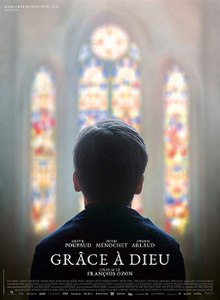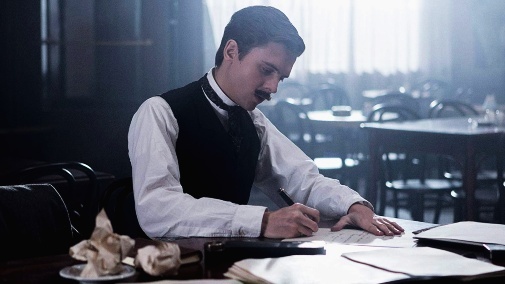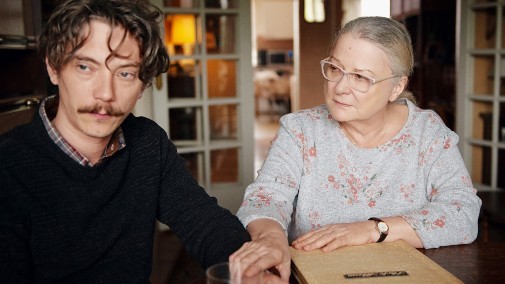by Cláudio Alves


Pity those who live in the shadow of Oscar's champions. Such is the case of two French films from last year which now arrive in American theatres. If they were Hollywood productions, we'd surely be talking about Cyrano, My Love and By the Grace of God as potential contenders. As it stands, they can expect some golden recognition in the shape of the César rather than a little golden man. They must also expect eternal comparisons to more famous movies...

Alexis Michalik's Cyrano, My Love takes its cues from Shakespeare in Love, doing to Edmond Rostand what the Miramax comedy did to the Bard. This time around, instead of Elizabethan London and Romeo and Juliet, we have turn of the century Paris and Cyrano de Bergerac. Still, the basic ingredients remain the same in this French variation of the anglophone recipe. Once again, the inspiration for a remarkable play comes from the artist's personal life and there's no greater fountain of greatness than the affections of a beautiful woman.
There are inexperienced actors, love blossoming backstage and there's even some last-minute recasting. Still, where the Shakespearean romance was light and emotionally powerful, this French confection feels stodgy and unbalanced. While it's fun to revisit the delights of Cyrano's verses and see how 19th-century actors staged Baroque splendor, the result leaves much to be desired. The sort of character assassination done to the main female roles during the last act's resolutions is particularly awful. There are few things worse than a fun dessert leaving a sour taste in the mouth.

Spotlight is the Best Picture echoed by François Ozon in By the Grace of God. In this case, however, the similarities aren't as significant or cumbersome. Mostly, it's a matter of theme and subject matter, both films dealing with true stories of sexual abuse and pedophilia in the Catholic Church. One significant element that differentiates the projects is that Ozon doesn't dramatize the experiences of journalists, but that of the victims. Because of this, By the Grace of God is both angrier and more emotionally unresolved than Tom McCarthy's movie.
Instead of his usual cocktail of sexual psychosis and lurid melodrama, the director has approached the story with uncharacteristic restraint. I never thought I'd say this about an Ozon film, but By the Grace of God is positively austere. Such dramatic concision rubs against the fractured psyches at the story's center, highlighting the effects of trauma by refusing to play them up with stylizations.
At almost two and a half hours, the film is an epic of institutional oppression and activist contentions, its rigidness becoming both more powerful and frustrating as it goes along. In many ways, the actors carry the weight of it all and do so admirably. In the lead roles, Melvil Poupaud, Denis Ménochet, and Swann Arnaud convey three distinct visions of adults defined by their childhood horrors, some turning their backs on religion while others try to make sense of their faith amid the Catholic Church's cover-up of unforgivable crimes. The supporting cast is equally astounding, never simplifying the complexities at play in this real-life nightmare that will never end for the people involved.
